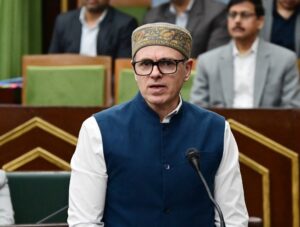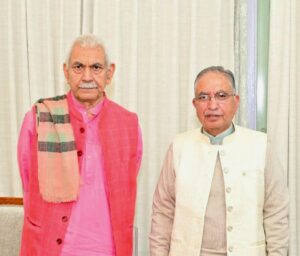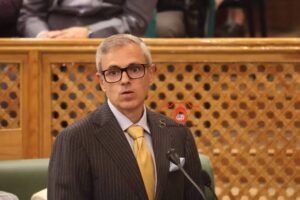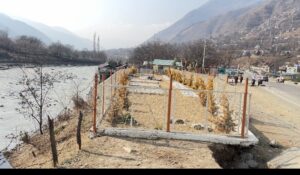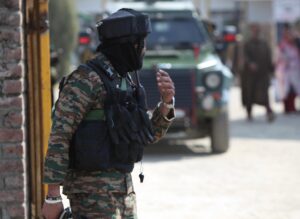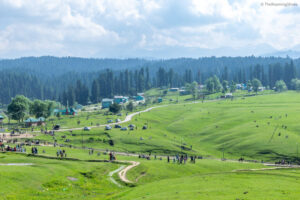Democracy in JK Under Threat Due to Assembly Poll Delay, Says Sagar
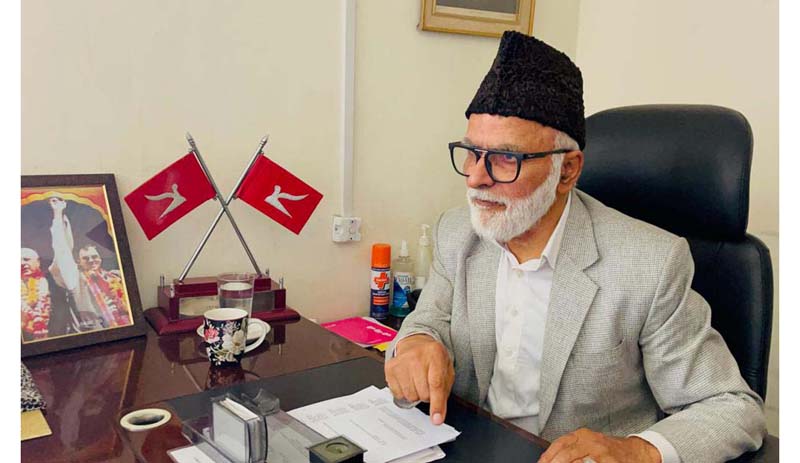
SRINAGAR: Ali Muhammad Sagar, General Secretary of the Jammu and Kashmir National Conference, expressed concern on Monday about the absence of an elected government for five years, leading to an escalation in public grievances and a lack of accountability in administration.He made these remarks while addressing a meeting of party leaders and officials at the party headquarters today.
The meeting involved detailed discussions on the current political situation in Jammu and Kashmir, the challenges faced by the people, and organisational matters.
In the absence of democracy, solving the people’s problems becomes impossible. The bureaucratic system cannot replace a government elected by the people under any circumstances,” Sagar said.
“Only a popular government resulting from a fair and transparent election can truly alleviate the people’s concerns.”Furthermore, he lamented that Jammu and Kashmir has been left to the discretion of a select few for the past five years, depriving the people of democracy.
He emphasised that elections are the cornerstone of democracy, and the progress and prosperity of countries depend on democracy. However, he expressed disappointment that the central BJP government is reluctant to hold elections in Jammu and Kashmir while elections proceed on schedule in other states across the country. He questioned, “Why this discrimination against Jammu and Kashmir?”
Sagar highlighted that the undemocratic system has left the people of Jammu and Kashmir in a state of despair, with frustrated and disillusioned youth, high unemployment, and a deficit in development. He noted that decisions and actions are made without public scrutiny, and common people’s voices go unheard.He acknowledged the sacrifices made for the establishment of democratic, administrative, constitutional, and legal institutions in Jammu and Kashmir, expressing concern that the current central government is dismantling these achievements.
Sagar attributed the establishment of democracy and democratic institutions in Jammu and Kashmir, including Panchayat Raj, Kisan Raj, and Mazdoor Raj, to the historical and revolutionary initiatives of the J&K National Conference.
He noted that the creation of local bodies and cooperative institutions in cities and villages was also a gift from the JKNC. These initiatives granted the people of Jammu and Kashmir the right to vote, freedom of the press, access to justice through the judiciary, land ownership rights for 80 percent of the rural population, free education, and free medical treatment. He stated that the National Conference’s revolutionary actions are recorded in history, and the party has a promising future.
Senior leaders, including Shamima Firdous, Muhammad Sayed Akhoon, Ahsan Pardesi, Peer Afaq Ahmed, Er. Sabia Qadri, Jagdish Singh, Azad, Dr. Muhammad Saeed Makhdumi, Qaiser Jalali, and other officials, also attended the meeting.

